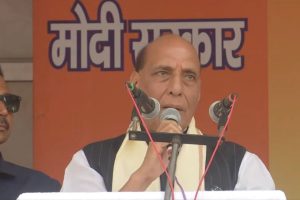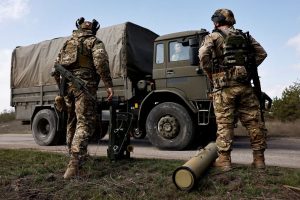There has been a spate of recent literature including, most notably The Inheritance: America’s Military After Two Decades of War by Mara E. Karlin, on the impact of two inconclusive wars in Iraq and Afghanistan on the world’s greatest military power, the United States of America.
Exploring how the US military machine can move beyond two decades of being incessantly involved in conflicts far from home is of great interest to those analysing matters military, of course. The strategic ramifications of the legacies of these wars on how Washington may wage war in the future too is of significant import. But arguably of greater interest is the political-ideological question: Has America learnt its lesson in terms of how it goes about implementing its vision of a world where democratic states and inclusive societies flourish under a benign free-market model? Introspection on the two wars waged by the USA is a useful exercise in this respect.
“Never in modern US history has the military been at war for so long. And never in US history have such long wars demanded so much of so few. The legacy of wars without end includes a military that feels the painful effects of war but often feels alone. The public is less connected to the military now than at any point in modern US history,” writes Karlin. But is President Joe Biden listening? On the evidence thus far, it would seem not.
After cutting and running from Afghanistan last year, and having earlier effectively Balkanised an Iraq which under the Ba’ath Socialists/Saddam Hussein was a functional, secular ~ albeit criminally oppressive ~ state, the US Administration has now clarified that nation-building is expressly not a part of Washington’s agenda in countries where it has intervened militarily, more often than not on a dodgy legal basis.
How does that square with the stated aims of the Democracy Summit hosted last month by President Biden? Washington has also clearly pivoted from its post9/11 security focus on terror emanating from Muslim-majority countries primarily in West and South Asia and moved towards engaging with what is classifies as “emergent global threats” including China and Russia. Given the disinterest-fuelled ignorance of Americans about why action, by military or other coercive means, ought to be undertaken and a lack of clarity on the political aims of the Biden administration, the Taiwanese, Uighurs, Ukrainians, and Kazakhs among others cannot be blamed for feeling less than enthused at the prospect of America as an ally.
The USA is not just woefully unprepared for future conflicts, it is also struggling with the relationship between the civil administration, the military establishment, and the citizens. In such a scenario, going back to the drawing board to debate America’s role as the so-called leader of the free world should be the first order of business.











